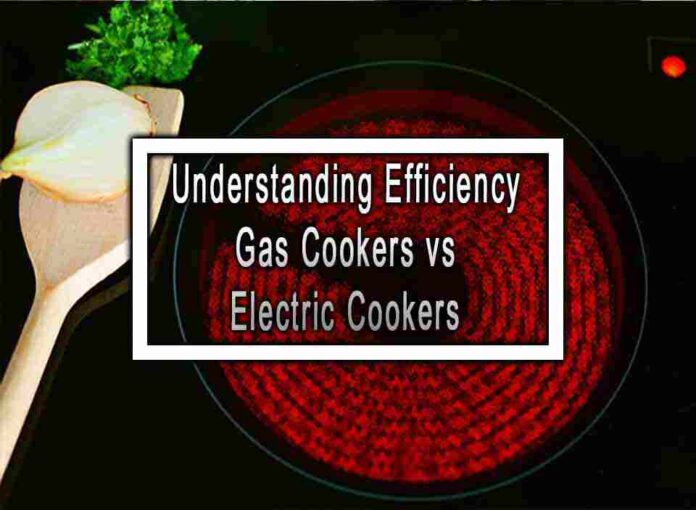Gas cookers and electric cookers are two common types of kitchen appliances used for cooking food. Each type has its advantages and disadvantages, and the choice between them depends on various factors, including personal preferences, cooking habits, energy availability, and overall efficiency. Let’s explore the differences between gas and electric cookers in terms of efficiency:
1. **Heat Source and Energy Efficiency:**
– **Gas Cookers:** Gas cookers use a flame produced by burning natural gas or propane as the heat source. The heat is instantly generated, and it is easy to control the flame intensity, providing immediate and precise temperature adjustments. Gas cookers are generally considered more energy-efficient because the heat is directly applied to the cookware, resulting in less heat loss.
– **Electric Cookers:** Electric cookers use electrical resistance to generate heat, which is then transferred to the cookware. This process involves converting electricity into heat, which can be slightly less efficient compared to direct heat from gas burners. Some energy may be lost during the conversion process, leading to slightly higher energy consumption.

2. **Response Time and Cooking Control:**
– **Gas Cookers:** Gas cookers offer instant heat and response time. When you turn the knob, the flame ignites immediately, allowing you to start cooking right away. The ability to adjust the flame intensity also gives you precise control over the cooking temperature, making it easier to cook delicate dishes that require quick adjustments.
– **Electric Cookers:** Electric cookers take some time to heat up as the electric coils or ceramic elements warm up gradually. They might not offer as quick a response time as gas cookers. However, some electric cookers come with advanced technology that can minimize the delay and provide better heat distribution for more even cooking.
3. **Cost and Fuel Prices:**
– **Gas Cookers:** Generally, natural gas and propane are cheaper fuel sources compared to electricity in many regions. Using a gas cooker can result in lower energy bills if you have access to affordable gas.
– **Electric Cookers:** The cost of electricity can vary depending on your location and utility provider. In areas where electricity is cheaper than gas, electric cookers might be a more cost-effective option.
4. **Safety Considerations:**
– **Gas Cookers:** Gas cookers come with open flames, which require careful attention to safety. There’s a risk of gas leaks or accidental flames, making proper ventilation and gas leak detection essential.
– **Electric Cookers:** Electric cookers eliminate the risk of open flames and gas leaks. They are generally considered safer to use, especially in households with young children.
5. **Environmental Impact:**
– **Gas Cookers:** Burning natural gas or propane releases carbon dioxide and other greenhouse gases, contributing to environmental pollution and climate change.
– **Electric Cookers:** The environmental impact of electric cookers depends on the source of electricity generation. If your electricity comes from renewable sources like solar, wind, or hydroelectric power, using an electric cooker can be more environmentally friendly.
In conclusion, the efficiency of gas cookers vs. electric cookers depends on various factors, including the cost of energy, cooking preferences, and safety considerations. Gas cookers are often preferred for their instant heat and precise control, as well as potential cost savings if gas prices are low. On the other hand, electric cookers can be safer, especially in households with children, and may be more environmentally friendly if powered by renewable energy sources. Ultimately, the choice between gas and electric cookers is a personal decision based on your specific needs and circumstances.











